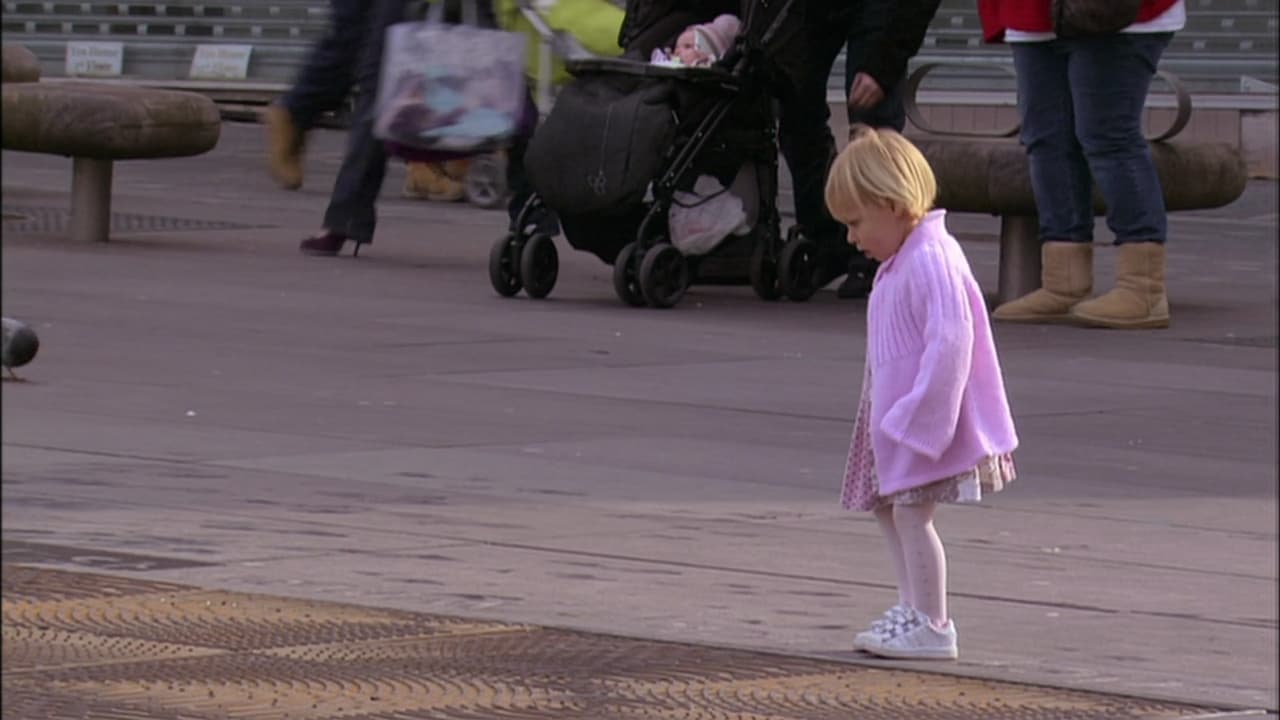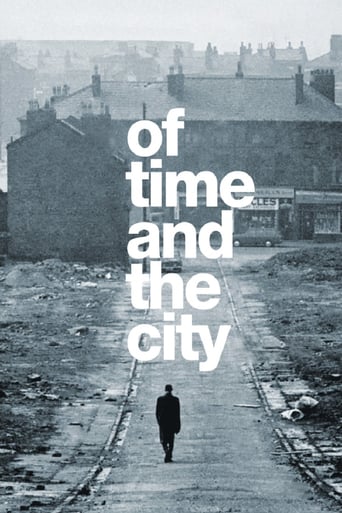

Terrence Davies look at Liverpool and himself takes the form of a tone poem on film. Its a wonderful mix of sound and image and commentary that all comes together to make something special.I don't know what to say about this film other than see it. I say that because this is a very hard film to talk about except unless you've seen it. The reason for this is that there really isn't a narrative as such more the flow of time with the result that I can't talk about sequences and such because its hard to say how they all fit together.I will say that this film wonderfully creates a feeling of being in Liverpool over the course of time thanks to a skillful blend of new and old footage. Rarely does a film make one feel that one has actually been to the place its about.If I have any reservations about the film its that Davies commentary sometimes takes a snide turn. Its not that I have a problem with how he says views the Royal Family, rather its that in changing his tone he changes the cadences of his words and their delivery and the magic spell he so carefully weaves breaks for an instant.A wonderful film that's best seen in a dark room on a big screen with no distractions.
... View MoreThis film is a subjective essay, and if you like the Church, the Pope, and the Queen and enjoy a stereotypical view of a green and pleasant post-war Britain, then it probably isn't for you. The realities of slum terraces and the tenement blocks that replaced them are here refreshingly and honestly celebrated by someone with the wit and wisdom to look beneath the usual, superficial glazing of nostalgia that makes some people think that we're living in a Britain now that is broken in comparison to the good old days. The truth is exposed time and time again through these images, and the accompanying words and music. It covers the period from the time when polishing the doorstep was a back-breaking social necessity, up to the 1980's by which time the poor in Britain's cities were expunged of any remaining dregs of social interaction and when the new tenements - built to replace the slums - were already falling into slums themselves. In focusing on one city, and one set of memories, the film successfully captures an essence of place that goes beyond Liverpool. Its subheading is "a love song and a eulogy", but this simply conveys the way in which this film evokes emotion. In truth, this 'visual symphony of rhythmic images' is nothing less than a stunning work of art.
... View MoreSTAR RATING: ***** Saturday Night **** Friday Night *** Friday Morning ** Sunday Night * Monday Morning Like Little Britain narrator Tom Baker, filmmaker Terence Davies is a luvvie queen from London who happens to have been born in Liverpool. Which explains the odd narration and really the wasted opportunity here had a true, gritty scouser been reading things. But in all fairness, this manages to emerge as such a boring, pointless, sentimental, pretentious and utterly self indulgent excuse for a documentary that it seems beyond salvage anyway.Davies, with his incomprehensible babblings regarding his old memories and commiserations and teeth grindingly posh and pomp voice, has engaged in a deeply personal project with seemingly no idea of how uninteresting and alienating it will be to his audience. A pile of old archive footage of people doing such interesting things as staring out of windows, walking in crowds, playing in streets and washing steps, is strung together whilst the maker relives old memories and tries to get in touch with life and his own soul. Or, at least that's what I think. I'd like to consider myself as intelligent, but I really couldn't fathom any deeper meaning to any of this and was instead just left bored out my mind. It's blissfully short, and might help you get off to sleep, but really, why not just watch some pornography instead? *
... View MoreLuckily it was only 77 minutes. This documentary on Liverpool, UK, during the 20th century had potential, but it was like watching a college student's project instead of the work of a 64 year old man. The archival footage was interesting, but the negative, cynical poetry of TS Eliot and James Joyce was very depressing and dark. Here is footage of smiling beautiful Brits going about life and being happy with friends and family, and happy playing children, despite living in a poor city, and the heavy dressing poetry being read over it was ridiculous. Try living in a tough, diverse American urban center, with rampant crime & conflict and then you'll have something to complain about. The poetry was hard to understand too, and no captions available. It is pretentious to prove you are literate by using Joyce or Eliot's words (or whoever the poems were by - there was no attribution), despite them being very whiny, cynical, negative and depressing.It was boring to me and to my male friend. We didn't think it was cute or clever to call Queen Elizabeth and Prince Philip, 'Betty and Phil" and to be so critical of the Royal pomp & pageantry while adoring Hollywood glitter and pomp. The commentary was unwise, immature, cynical and depressing. The special features were BORING too. Everyone is kissing butt of the director because of past work, but this movie was like a POV show on PBS.The director could have focused on any number of beautiful things about life in Liverpool, including the beauty of the townspeople, instead of the depressing drone of complaints. I recommend to miss it or watch the footage with the sound off. One other point: in the special features they mention more than once that the song The Folks Who Live on the Hill was "BY" Peggy Lee. She sang it, but it was written "BY" Oscar Hammerstein II and Jerome Kern.
... View More